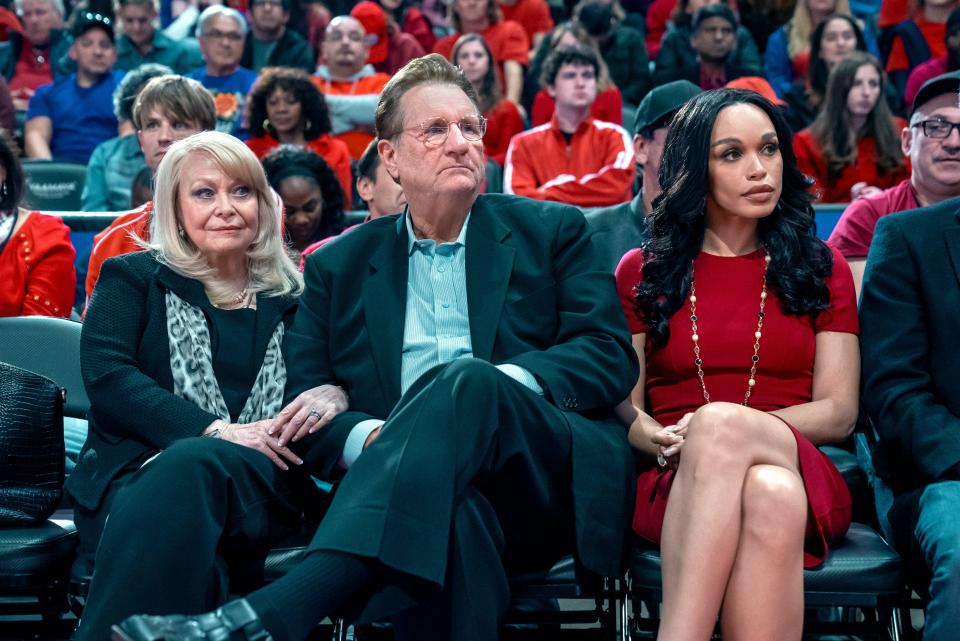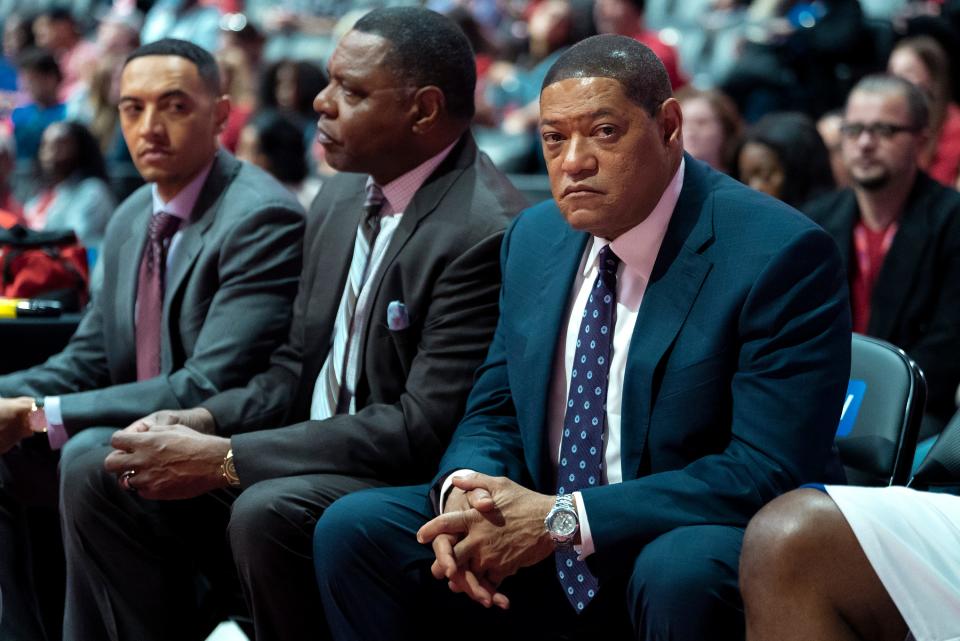Clipped' revisits Donald Sterling, the L.A. Clippers and the NBA's big scandal: Review
It was the iPhone recording heard round the world. And now we all get to hear it again in Hulu's "Clipped."
A decade ago, the sports world was rocked by a tape of then-Los Angeles Clippers owner Donald Sterling making racist, condemnable comments about Black people to his mistress/confidante, V. Stiviano. The recording, which was published by TMZ as the Clippers played in the first round of the NBA playoffs, led to international outrage and forced an eventual sale of the team and a lifetime ban of Sterling from the NBA. But he and his wife also made a cool $2 billion from the sale, and racism didn't end with him.

It was a saga that played out in the public eye, with jaw-dropping TV interviews from Stiviano, Sterling and his wife, Shelly, protests by NBA players, statements by President Barack Obama and peanut-gallery commentary by anyone with a keyboard.
It might seem unnecessary to dramatize the Sterling saga; it was covered wall to wall by the media and internet commenters back in 2014, and is still fresh in our collective memory. But "Clipped" (streaming Tuesdays, ★★★ out of four) makes a case to revisit this story. Created by Gina Welch and based on the ESPN "30 for 30" podcast "The Sterling Affairs," "Clipped" succeeds as a compelling way to relive one of the biggest NBA stories of the 21st century and a bigger picture discussion about racism, capitalism, and who really "wins" in American society. It's the only basketball TV series you'll see with almost no time spent on the court. Instead, you'll see riveting meetings in hotel ballrooms.
The series begins as Doc Rivers (Laurence Fishburne) joins the Clippers as head coach, and it takes its time setting up all the players in this off the court game before the tape is released and chaos reigns. Ed O'Neill plays Sterling with a notable commitment to embodying the wealthy man's off-putting egotism and smarm in his every scene and sordid dialogue. As portrayed by the series, Sterling is exactly the kind of man who would say the words on that tape, letting out casual racism, sexism and general offensiveness in nearly every word. He's trailed by his "assistant," V. Stiviano (Cleopatra Coleman), who is really his platonic mistress/confidante/chauffeur and records the insane and indecent things he says, including the infamous "don't bring Black people to my games" rant. His wife, Shelly (Jacki Weaver), thinks of herself as the voice of reason and kindness within her marriage and their businesses, but as the series goes on it doesn't paint her with a particularly flattering brush.
Join our Watch Party! Sign up to receive USA TODAY's movie and TV recommendations right in your inbox

O'Neill puts on a showy performance, and Fishburne brings such intensity to Rivers' anger and emotion I thought he might give himself an aneurysm. But the series champion is Coleman, who has the exceedingly difficult job of bringing humanity to an enigmatic and only briefly public figure known mostly for her erratic behavior. The series spends ample time examining her state of mind, her status as a biracial woman with her own internalized racism and the power and financial hierarchy of Los Angeles. Coleman doesn't give us a caricature, and the sensitive portrayal is to her credit.
The series, however, slightly fails in its portrayal of the Clippers. Big names show up as part of the story, from Chris Paul (J. Alphonse Nicholson) to Blake Griffin (Austin Scott) to JJ Redick (Charlie McElveen) to DeAndre Jordan (Sheldon Bailey). These men are in the thick of the controversy simply by being team members (and most of them are Black), and yet there isn't quite enough depth to them as they debate how to protest Sterling's words and whether they should play for his team at all. The series could have spent more time with them, because as it is, their scenes feel like a cursory check-in before the action goes back to Sterling, Rivers and Stiviano. The best and most nuanced discussions about race and basketball and America come not from the locker room but from Rivers and, of all people, LeVar Burton, playing himself.

As with many true stories like this, "Clipped" ends on an underwhelming, unsatisfying note. But that is the way it has to be, because the problem of American racism − in the NBA and sports and our everyday lives − is nowhere near solved. The fictionalized versions of the players lament that they weren't able to make this moment about more than one "bad apple." Nods to the killing of Trayvon Martin and protests in Ferguson, Missouri, which happened later in 2014, only emphasize this. And any viewer who has paid attention to the past decade of news can think of so many more "moments" meant to change the way we talk and act about race in this country that fizzled into nothingness.
How are all those diversity, equity and inclusion pledges from 2020 looking in 2024, hmm?
This article originally appeared on USA TODAY: 'Clipped' review: Donald Sterling's NBA scandal feels relevant


